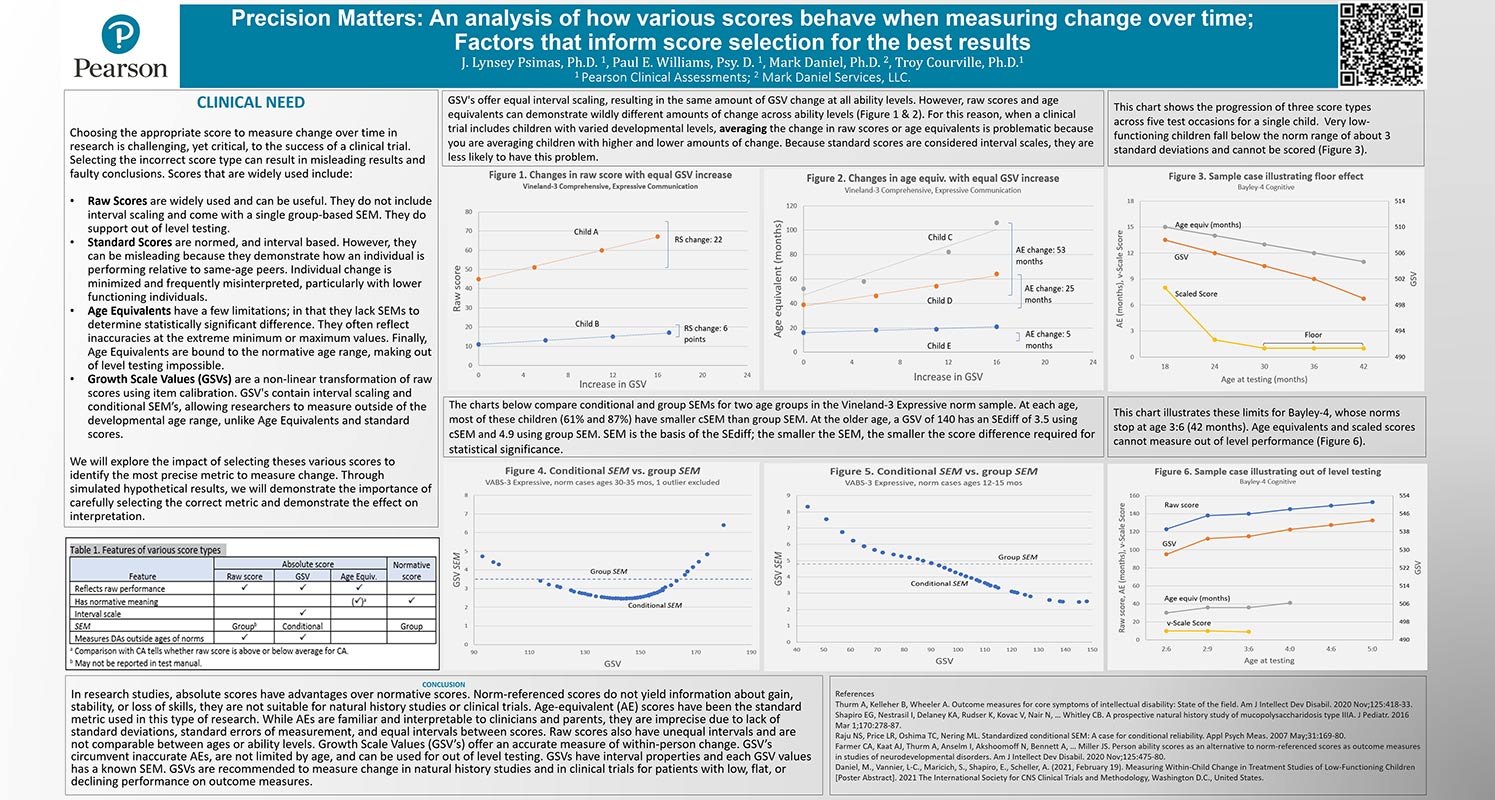Clinical trial considerations: All scores are not created equal

Dr. Lynsey Psimas, Ph.D and Dr. Paul Williams PsyD attended CNS Summit 2023 and were fortunate to have the opportunity to present their poster, Precision Matters: An Analysis on How Various Scores Behave When Measuring Change Over Time; Factors That Inform Score Selection for the Best Results”.
The importance of choosing the right scoring metric for your trial
The poster highlighted the various scores — Raw Scores, Standard Scores, Age Equivalents, and Growth Scale Values (GSVs) — used to measure change over time and explained the difficulty of choosing the right score to assess change over time in research. According to their presentation, the decision of which score type to use in a clinical trial is crucial as selecting an improper score type could lead to misleading findings and inaccurate conclusions.
Dr. Psimas and Dr. Williams, along with other subject matter experts, investigated the influence of these various scores to determine the most precise metric for measuring change. They also used simulated hypothetical findings to depict the necessity of carefully choosing the correct metric and its effect on interpretation.
The findings
Through the process of research investigations, it was discovered that absolute scores outperform normative scores. Because norm-referenced scores do not provide information regarding skill gain, stability, or loss, they are unsuitable for natural history research or clinical trials. The typical metric in this type of research has been age-equivalent (AE) scores. While physicians and parents are familiar with and can interpret AEs, they are imprecise due to a lack of standard deviations, standard errors of measurement, and uniform intervals between scores.
Indicated for measuring change in natural history research and clinical trials for patients who perform poorly, flatly, or decline on outcome measures, Growth Scale Values (GSVs) provide an accurate estimate of within-person change. GSVs avoid erroneous AEs, are not restricted by age, and can be utilized for out-of-level testing. Additionally, GSVs have interval features, and each GSV value has a known standard deviation (SEM).
The importance of choosing the right scoring metric for your trial
The poster highlighted the various scores — Raw Scores, Standard Scores, Age Equivalents, and Growth Scale Values (GSVs) — used to measure change over time and explained the difficulty of choosing the right score to assess change over time in research. According to their presentation, the decision of which score type to use in a clinical trial is crucial as selecting an improper score type could lead to misleading findings and inaccurate conclusions.
Dr. Psimas and Dr. Williams, along with other subject matter experts, investigated the influence of these various scores to determine the most precise metric for measuring change. They also used simulated hypothetical findings to depict the necessity of carefully choosing the correct metric and its effect on interpretation.
The details about GSVs
Equal interval scaling of GSVs increases precision and reliability while indicating the direction of change in a patient’s performance.


